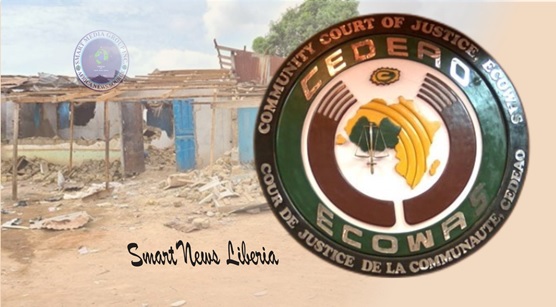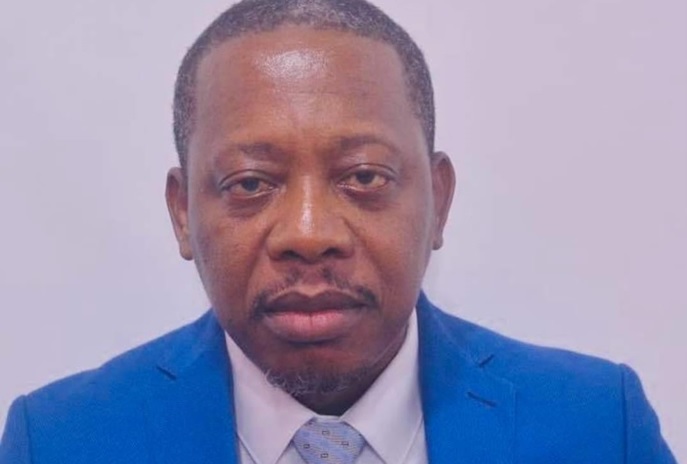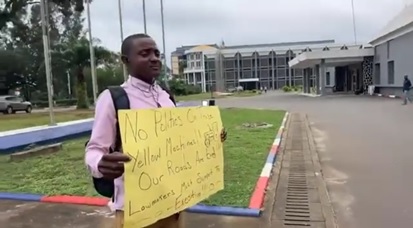NIMBA COUNTY, LIBERIA — Tensions are mounting in Ganta, Nimba County, where the Ganta Support Group has issued a stern ultimatum to the Liberian government. In a dramatic escalation of a longstanding land dispute, the group has threatened to reclaim their disputed properties by force if the ECOWAS Court’s ruling is not swiftly enforced.
The ECOWAS Community Court of Justice recently delivered a landmark judgment siding with aggrieved landowners, citing violations of property rights under Article 14 of the African Commission on Human and Peoples’ Rights. The ruling underscored Liberia’s failure to prevent breaches of these fundamental rights, as guaranteed by Article 1 of the same commission.
This ruling, seen as a beacon of hope promising restitution and accountability, has not translated into action on the ground. The slow pace of implementation has exacerbated tensions, prompting the Ganta Support Group to consider drastic measures. Lead lawyer Daouda Keita’s recent statement on a local radio station underlined their resolve, noting potential resort to violent means if their demands are not met promptly.
Local leaders and activists in Nimba County have echoed the frustrations of the Ganta Support Group, emphasizing the broader implications of this dispute. They argue that failure to enforce the court’s decision not only undermines the rule of law but also perpetuates historical grievances, posing risks to social stability and inter-ethnic relations in Liberia.
Moreover, the Nimba County standoff exposes Liberia’s challenges in reconciling traditional land tenure systems with modern legal frameworks. The country’s complex land tenure system often leads to ambiguity and disputes, with slow reform efforts leaving many vulnerable to exploitation and marginalization.
Internationally, the ECOWAS Court’s ruling has spotlighted Liberia’s human rights record and its commitment to regional agreements. The African Commission on Human and Peoples’ Rights emphasizes property rights as crucial for social justice and economic stability. Liberia’s adherence to these principles is pivotal for domestic peace and international credibility.
As Liberia navigates these challenges, stakeholders urge constructive dialogue and proactive measures. Diplomatic efforts, including mediation and compliance monitoring, offer a pathway to reconciliation and sustainable solutions. The outcome in Nimba County will not only affect local dynamics but also Liberia’s broader trajectory toward justice and human rights.
In response to escalating tensions, Liberian officials acknowledge the ECOWAS Court’s ruling and commit to resolving the issue through legal channels and dialogue. The government’s duty to uphold judicial decisions but logistical challenges in timely implementation, signaling a need for streamlined procedures and inter-agency coordination.
Civil society organizations and advocates support Nimba County’s communities, providing legal aid and advocacy. The Liberia Land Rights Movement and local NGOs empower communities to seek justice while respecting traditional practices and legal protections.
Internationally, ECOWAS and the African Union monitor Liberia’s compliance with the ECOWAS Court’s judgment. Economic partners stand ready to support reforms promoting inclusive governance and conflict resolution.
The Nimba land dispute tests Liberia’s commitment to human rights, the rule of law, and social cohesion. Resolution could set a regional precedent, influencing stability and governance frameworks. A concerted effort by all stakeholders is crucial for a just and sustainable resolution respecting all Liberians’ rights and aspirations.







